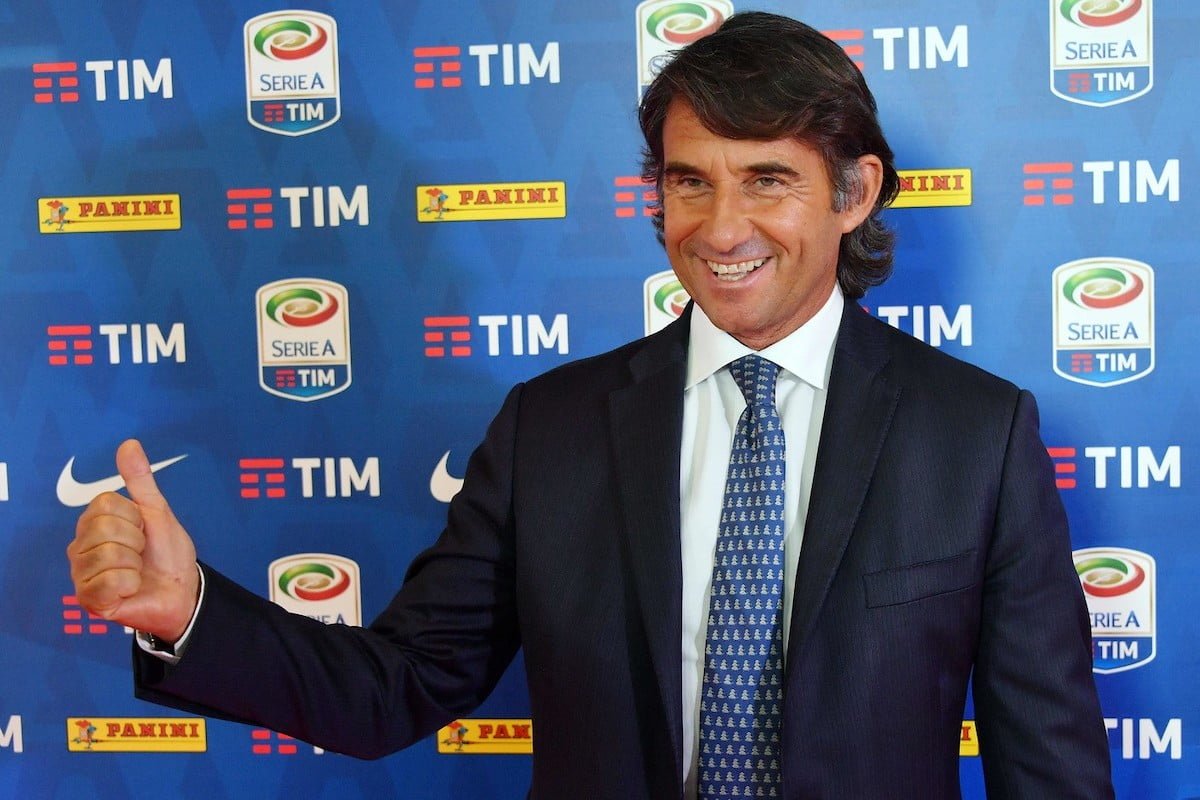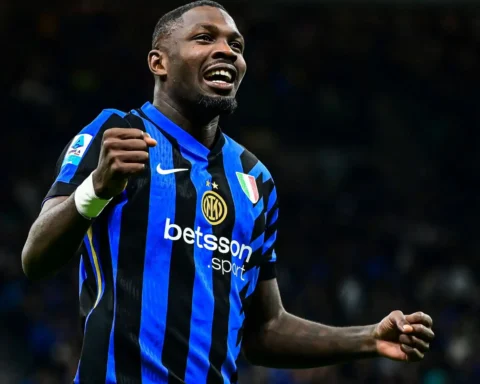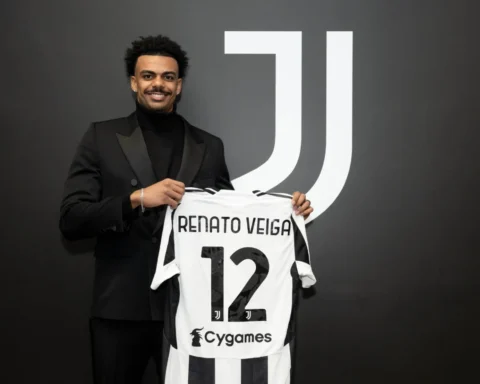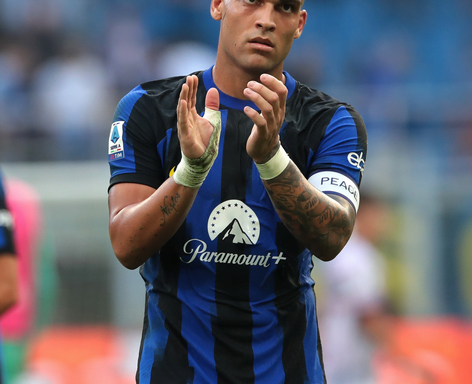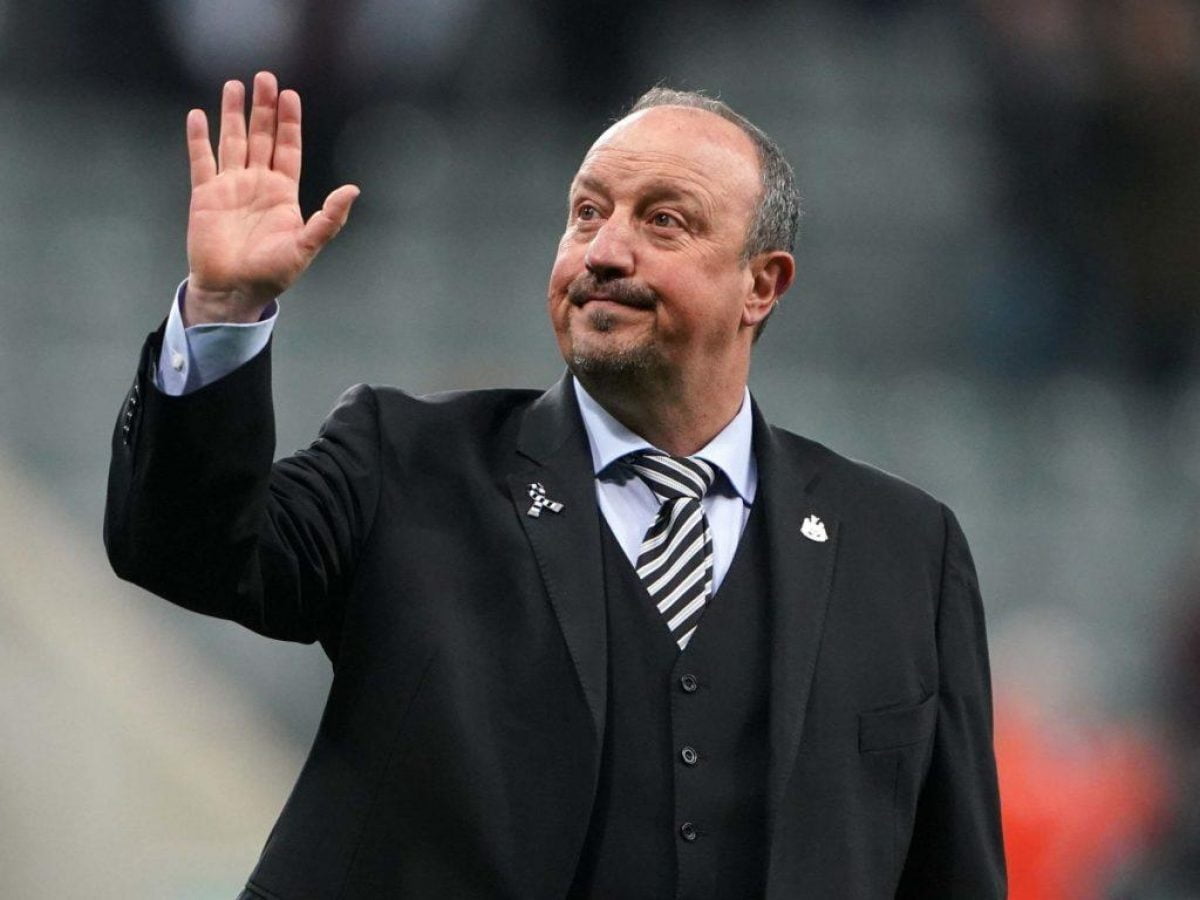Sassuolo director Giovanni Carnevali believes Brighton coach Roberto De Zerbi is ready for the step-up to a ‘top’ club. The two worked together closely at the Neroverdi, and Carnevali revealed previously that he had followed De Zerbi’s career since he was 15-year-old, playing in the Milan youth academy. Speaking in a lengthy interview with La Gazzetta dello Sport, Carnevali discussed his close relationship with De Zerbi, how he closely followed his career over the years before bringing him to Sassuolo, and why the Brighton coach thinks only about football:
Let’s start from the beginning, from that 15-year-old that you knew …
“All genius and unruliness, in the sense that even then he showed off-the-charts technical qualities that, however, did not become the footballer I imagined.”
You found him to be a coach of a different sort….
“Yes. Before bringing him to Sassuolo, I had followed him for quite some time. He impressed me with the way he made his teams play and, despite his relegation to B at the helm of Benevento, in 2018 I thought he was the right coach for us. I was very convinced that he was the best choice for us, but also for him: he needed a growth path like the one we could offer him. An environment without pressure and a young team to be shaped according to his ideas. Ours was a perfect marriage.”
How did you manage to convince him?
“Between the two of us there was harmony from the first meeting. We had the same way of seeing football.”
Meaning?
“We both like attacking, dynamic, courageous football, expressed through control of the game. By vocation, Sassuolo builds the team with this intent; we give perhaps even more importance to the game than to the result, because we believe that from the game can come the result. From here, from this common vision, a relationship was born between him and me that goes beyond the profession. We talk often, almost daily, and again three weeks ago I was with him in Brighton.”
And how have you found the English version of De Zerbi?
“He is getting better and better. He has more experience. He is still the same: someone who, because of his impulsiveness and his way of expressing himself, can seem a bit stubborn at first glance. But, taking him in the right direction, even this apparent stubbornness of his had and has positive implications.”
Which ones?
“A strong self-confidence. The same that he is able to transmit to the players. In any case, now Roberto seems more reflective to me.”
What does De Zerbi’s ideal player look like?
“He knows the players, because he lives for football. Of players, he appreciates versatility and, in his daily work, total availability. If he gets it, it gets into his head. He calls them at home, sends them training footage … That’s why I think, after three years at the same club, there is a need for a change, although I would have continued with him.”
Better to coach abroad?
“In Italy he had received many offers, even important ones, but I used to tell him, “Better than Sassuolo is hard to find,” and Roberto agreed. Moving abroad completed him as a coach and a man.”
Would he now do well to return?
“As a person, I think he misses Italy. In England, under the human aspect, he may struggle a bit. But from the professional aspect, I advise him to stay a few more years in the Premier League, the best there is today. He is still young, then he can come back.”
Was there a footballer you discussed and one he convinced you to take despite your doubts?
“It is well known that Sassuolo is considered an expensive store, and even 3 years ago for Duncan there was a major request from Fiorentina, which the club had decided to accept. De Zerbi was against it: “I need the player, and anyway, if you sell him, I need another one with the same characteristics.” In my opinion, the midfield was fine without Duncan. We were on the phone, we argued. I said, “I don’t want to sound rude, but I’m going to put down the phone now, I’m going to the Sheraton (the hotel where the transfer market is based) I’m going to sell Duncan and I’m not going to buy you anyone.” We didn’t talk for twenty days. One morning we crossed paths, burst out laughing, hugged, and everything started again as usual.”
And the player who he convinced you to sign?
“Kevin-Prince Boateng. Because of age and salary he did not fit our policy, but Roberto was, indeed, very convincing: ‘It is important to have someone with his charisma, also as an example and stimulus for younger people.’ In the end I listened to him, as I have done so many other times. I’m honest: it never happened that he asked for a player and I answered, “No way.” De Zerbi was very much ‘inside’ the Sassuolo project, so he knew perfectly well our parameters and to what extent we could go in the market.”
Can he call himself a ‘corporatist’ coach?
“Yes, but with him you have to be transparent: if you club explains from the beginning what the programs are and what the goals are, and De Zerbi agrees, from him you will never have problems. But if you promise one thing and then do another, he won’t swallow it. Since he arrived at Sassuolo and until the day he left, he has grown so much just in the character aspect. In the beginning he wanted to have his say on everything, when we explained to him that we were an organized club, where for each sector there was a person in charge who was accountable, he took a step back. Today I can say that we made him grow as he made us grow.”
You said he only thinks about football. Is there anything else he likes? For example, good food?
“I have had so many dinners with him, and in eating he has always been very regulated. But the big problem is that those dinners, while long from nine o’clock in the evening to one in the morning and very entertaining, were consumed always talking only about football.”
You said De Zerbi gives the players homework, and the memory goes back to Sacchi….
“Arrigo and I are like brothers. And we used to spend afternoons at his house watching videotapes of Foggia, who were coached by De Zerbi.”

